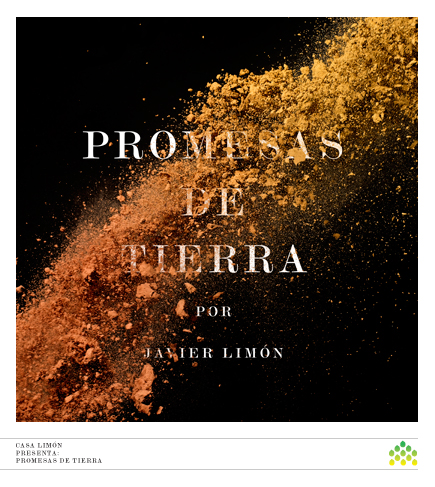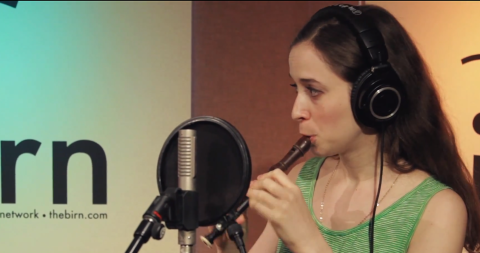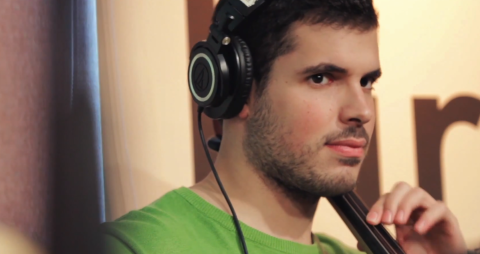Berklee Musicians Bridge Mediterranean Cultures with 'Promesas de Tierra'

CD cover for Promesas de Tierra

Tali Rubinstein

Naseem Alatrash
It’s an unfortunate truth, says producer Javier Limón, that great music is often the result of great pain. In the United States alone, blues, jazz, and hip-hop were largely born of hardship. And today, he says, some of the best musicians are coming from one of the most distressed parts of the world—the Middle East.
“The level of these musicians is really unbelievable,” Limón, the multiple Grammy Award-winner who serves as the artistic director of Berklee’s Mediterranean Music Institute, says. “To escape the pain they create the music and probably now it’s more difficult to find this kind of suffering in Europe or Boston or Chicago than in Ramallah, Syria, or Egypt. It’s really sad, but the truth is that hunger or war or pain or hate are the things that sometimes make people create beautiful art.”
Limón captures this sound in his latest CD, Promesas de Tierra (Promises of Land), in which students who are or have been in Berklee’s Middle Eastern Ensemble perform Limón’s flamenco compositions but leave their own imprints on each track.
Released in Spain in November, the album shot up to No. 5 on that country’s iTunes World Music list. Limón says a worldwide release is in the near future.
With arrangements by Limón as well as Spanish saxophonist Juan Garcia Illanas (a seventh semester film scoring major), Palestinian vocalist and qanun player Ali Amr '12, Israeli pianist Tal Even-Tzur '13, and Israeli recorder player Tali Rubinstein, the album unites the sounds of distant but connected parts of the Mediterranean.
“I think the Mediterranean cultures and the Latin culture are brothers and sometimes they are more separated than they really are in essence. Our roots are actually the same,” Limón says.
Both Rubinstein and Palestinian cellist Naseem Alatrash say certain songs on the album remind them of home.
“There is so much emotion and expression in the music,” Alatrash, a performance major, says. “I definitely connect to it… since it has all these sounds that bring all these memories from home. It moves emotions in me that are… you need these emotions to connect to home when you’re away.”
Alatrash’s cello wails stirringly at the beginning of the CD’s last track, “Pasodobles Samaritano,” before merging smoothly with flamenco notes, fusing the sounds of the east and west Mediterranean. “When I was playing, the whole time I was using inflections and ornaments from Arabic-Palestinian music,” he says.
Rubinstein, a performance major who plans to graduate in May, says she wasn’t thinking about Israel when performing but that since coming to Berklee she’s realized how much her heritage shapes her musical sensibilities. “Once I came to Boston I came to understand what’s unique about the way I hear music.”
The contrast between the Israeli and Palestinian styles is amazing, Limón says. “The Israelis have the harmonic, the arrangements, the perfection of the sound, and the Arabs have the melody, improvising—and they’re so different but together, one plus one, in this case, is three or four.”
The students say that although Limón wrote the album, he gave them license to improvise and help shape the sound of the recording.
“Every single thing that we would feel is missing or we wanted to explore, he would let us have complete liberty with that, like artistic freedom,” Rubinstein says. “And we just had the most amazing time doing it. It was just great.”
The result, she says, is a delicate, nuanced piece of art that requires careful listening. “It’s very fragile and exposed and beautiful. It’s got a lot of truth in it.”
One of those truths is that music unites people in a common language. That with music, when the talking sometimes stops, one can put aside conflict to share a moment of deep expression and meaning.
